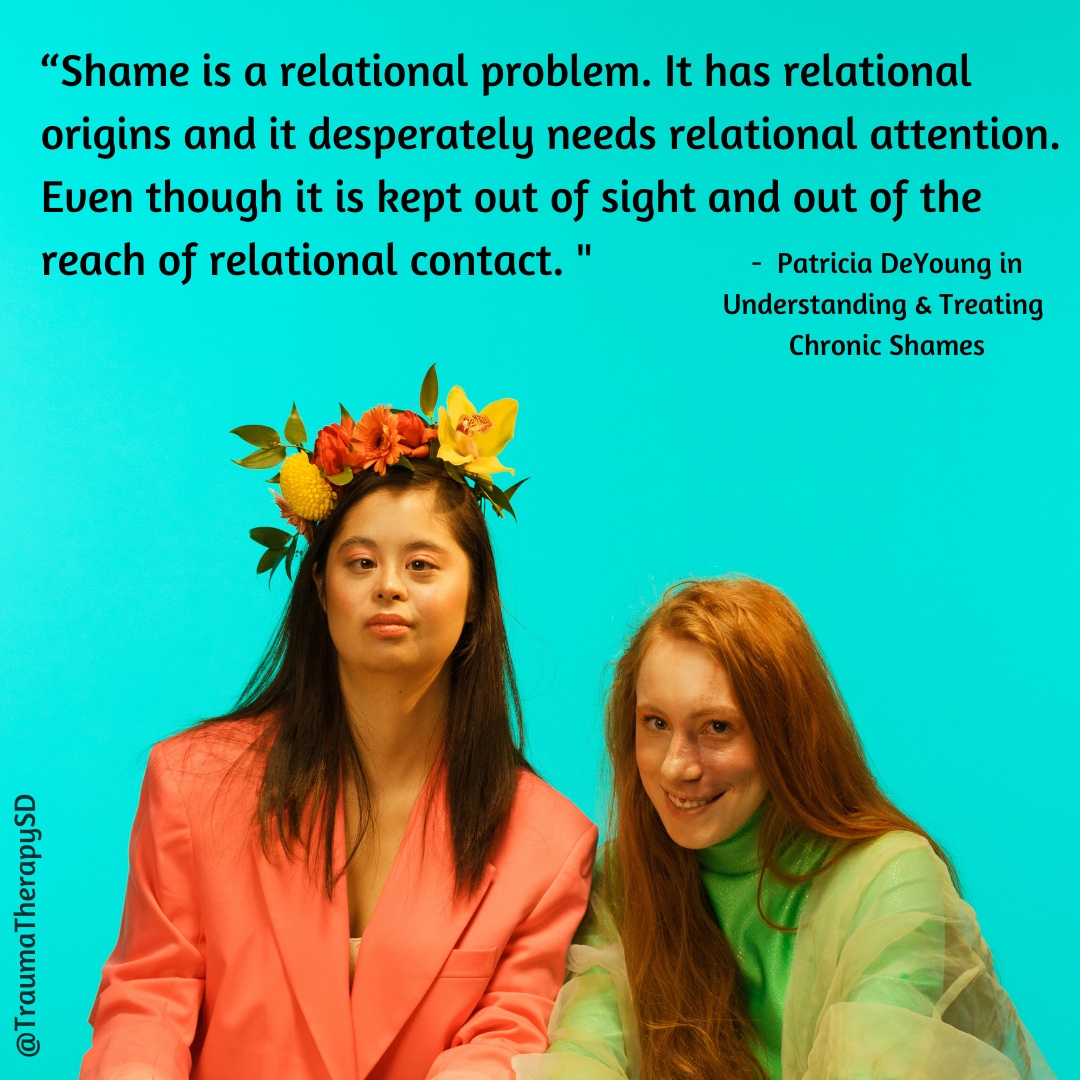Patricia DeYoung’s Understanding and Treating Chronic Shame

Shame is something we feel when we violate social norms. It’s a feeling of humiliation when we have done something we believe is immoral, dishonorable or improper. It leads us to view ourselves as shameful, or bad.
In moments when we are feeling shame we become over-focused on our mistakes or flaws, which become magnified. And we lose sight of the situation, the context, and our strengths and abilities, which we tend to dismiss.
By it’s nature it is a relational emotion, because it’s tied to social norms and values that we fear we are falling short of or have violated.
It is relational in that we want to hide our shame away from the eyes of others, because of what we think it means or says about ourselves and our badness. We fear that if others found out we would be rejected, criticized or shunned.
Shame can develop when there is abuse in childhood, when a child is constantly compared to a sibling or what others their age, sex, etc. are doing. It can develop from being bullied, feeling that you had to earn love, and when society promotes negative messages about those in your group (based on race, religion, gender identity, immigration status, etc).
And that is why shame can be healed in relationship – in a loving partnership, in an accepting environment, in a therapeutic relationship. In these spaces we can learn that we are not alone in what has happened to us, in who we are, or in the mistakes we have made.










